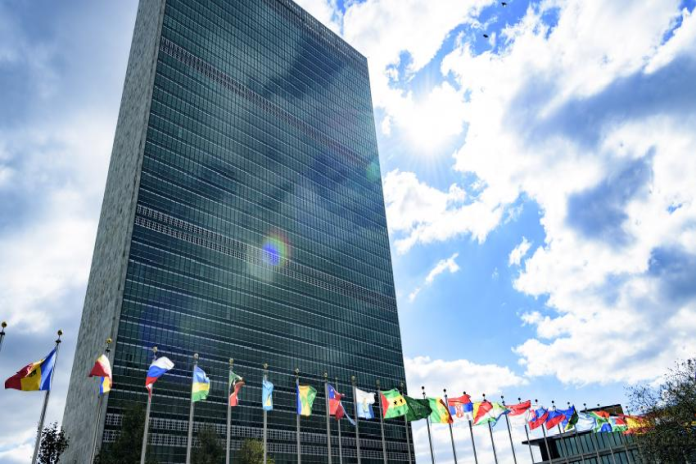By Chung Yu-chen and Frances Huang
WASHINGTON, USA, (CNA) – US senators across party lines on Thursday proposed a resolution to reject China’s mischaracterization of United Nations Resolution 2758, saying Beijing’s claim of sovereignty over Taiwan based on the UN resolution is not accepted by the world.
US Republican Senator Jim Risch, a ranking member of the Senate Foreign Relations Committee, and Democratic Jeanne Shaheen proposed the resolution, reaffirming that the “one China policy” of the United States is not equivalent to the “One China Principle” of the Chinese Communist Party (CCP).
“The passage of United Nations General Assembly resolution 2758 in 1971 does not mean the world accepts China’s claimed sovereignty over Taiwan. Moreover, the United States’ ‘one China policy’ is not the same as China’s ‘One China Principle’,” Risch said in a statement.
“Chinese leaders know this, but spread this propaganda to deny Taiwan’s ability to engage with international organizations. This resolution sets the record straight. The United States can and should push back on China’s false narratives at every opportunity,” Risch added.
Resolution 2758 was adopted by the 26th U.N. General Assembly in 1971 to solve the issue of China’s representation in the UN system. It ultimately led to Taiwan, officially named the Republic of China (ROC) withdrawing from the UN and the People’s Republic of China (PRC) taking its place.
The resolution passed on October 25, 1971, recognizes the PRC as the “only lawful representative of China.”
However, Taiwan and US governments have repeatedly argued, that the resolution does not mention Taiwan, does not state that Taiwan is part of the PRC, and does not explicitly authorize Beijing to represent Taiwan in the U.N. system.
According to the seven-page resolution introduced by the two American lawmakers, China has weaponized resolution 2758 and the “One China Principle” to isolate Taiwan and prevent the island’s meaningful participation at the UN, UN-affiliated agencies, and other international organizations, such as the World Health Organization (WHO), the International Civil Aviation Organization (ICAO), and International Criminal Police Organization (Intrpol).
In 2005, then UN General Secretary Ban Ki-Moon even cited the resolution 2758 to refuse Taiwan’s accession to the UN in 2007, using the incorrect assertion that the resolution supported China’s claim that Taiwan is part of China, the proposed resolution said.
In addition, China took advantage of the UN resolution to coerce, intimidate, or punish sovereign nations for engagement and partnership with Taiwan, the proposal resolution added.
The proposed resolution indicated the UN resolution does not make a position on Taiwan’s ultimate political status and does not represent a consensus of the UN on Taiwan’s status.
It also offers support to Taiwan’s diplomatic allies for continuing official relationships with Taiwan, and other nations around the world for strengthening their partnerships with Taiwan.
“The United States remains committed to Taiwan’s meaningful participation in international organizations and to a peaceful resolution of cross-Strait issues,” Shaheen said in the statement. “I’m proud to help introduce this bipartisan resolution that firmly pushes back on the PRC’s dangerous and disingenuous mischaracterization of UN resolution 2758,” Shaheen added.
Meanwhile, Risch, Democratic senators Ben Cardin and Chris Coons and Republican Senator Lindsey Graham on Wednesday wrote a letter to the WHO General Secretary Tedros Adhanom Ghebreyesus, calling for support of Taiwan’s meaningful participation in the WHO and the World Health Assembly (WHA), the decision-making body of the WHO.
Taiwan took part in the WHA as an observer from 2009 to 2016, when relations between Taipei and Beijing were smoother under the then Kuomintang government in Taiwan.
However, since 2017, China has pressured the WHO not to invite Taiwan to the WHA, in retaliation against President Tsai Ing-wen (蔡英文) from the independence-leaning Democratic Progressive Party, who took a harder line against Beijing.





